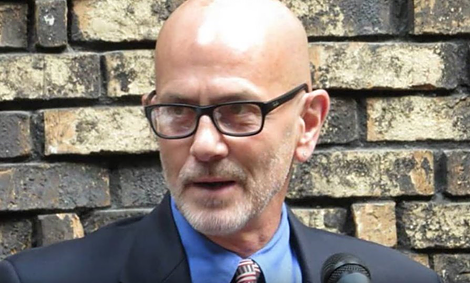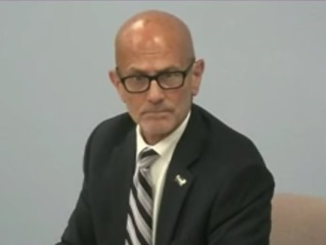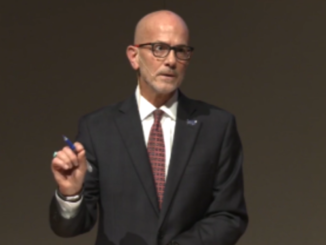
Information continues to be discovered regarding a possible botched job by City Administrator Keith Hunke of verifying signatures in the effort to recall Bismarck Mayor Mike Seminary. Quite honestly, this verification process is beyond embarrassment. It’s simply shameful.
Through information obtained today, it appears there is a real possibility that signatures with P.O. Boxes for addresses were invalidated. If true, this means that qualified electors in the city of Bismarck had their signatures invalidated.
Now, to be fair, there is currently access to just 19 of the 93 petitions. Why? Because Open Records Requests – submitted about a week ago – have still not been responded to. That leaves 74 missing petitions.
But on the 19 petitions that have been obtained, signatures with P.O. Boxes are highlighted right along with other apparent invalidated signatures. If indeed these signatures were included with the over 600 that were invalidated, it sure would be nice to know exactly how many fall into that category. But that’s impossible to know when the powers that be are stonewalling the Open Records process.
So, what is the standard according to the North Dakota State Constitution when it comes to addresses and signing petitions? It is found in Article III, Section 3:
"Each elector signing a petition shall also write in the date of signing and his post-office address. No law shall be enacted limiting the number of copies of a petition. The copies shall become part of the original petition when filed." (Emphasis Added)
What is a "post-office address"? I would think it’s the address at which you receive your mail. Could it be anything else? Remember, part of the petitioning process is verification. Signatures are often verified by sending postcards asking for verification that the individual indeed lives in the area affected by the petition.
In the section of the North Dakota Century Code on property, it actually distinguishes between "post-office address" and "street address" when it comes to the execution of deeds. Section 47-10-07 says this:
"Each deed executed in which real estate is described shall contain the post-office address,and any known or existing street address if within the corporate boundaries of a city, of each grantee named in such deed." (Emphasis Added)
While deeds are certainly a separate issue from that of petitions, I find the distinction between "post-office address" and "street address" fascinating.
There is another aspect to this beyond the State Constitution and the Century Code that is somewhat amusing. It is that of the petitions themselves when they ask for a:
"Residential Address or Complete Rural Route or General Delivery Address
" (Emphasis Added).
To me, a "General Delivery Address" is actually a lower standard than a P.O. Box, because General Delivery means that you have no mailing address at all! Why does a standard petitioning form list these as the options when the constitutional standard is simply "post-office address"? Furthermore, what logical person would think it okay to invalidate a P.O. Box while saying a General Delivery Address is acceptable?
Aside from this, have P.O. Boxes been an issue in the past? Take for example the Sponsoring Committee for the Fighting Sioux nickname. There were 52 members on that committee. Out of the 52, there were 10 of them that had P.O. Boxes for their addresses. That’s about 20% of the committee.
Going beyond the Fighting Sioux petition, we can also look at the more recent Marsy’s Law Sponsoring Committee. On that list is Burleigh County Sheriff Pat Heinert– who is also a Republican Representative from District 32. Well, it just so happens that Heinert’s address listed on the petition is none other than his P.O. Box.
Do you suppose the 10 committee members for the Sioux petition and Sheriff Heinert on the Marsy’s Law petition were all invalidated as sponsors for listing P.O. Boxes? I’m guessing that they weren’t. So, why invalidate citizens of Bismarck for doing the same thing on the petition to remove Mayor Mike Seminary? Especially when the constitutional standard is that of a "post-office address"– which they provided.
It sure seems like there’s a disconnect between the State Constitution and its application to the actual petitioning process. Worse yet, it seems that some folks think it’s acceptable to just make up their own rules as they go along and then stonewall efforts to get answers to questions from those they are supposed to be serving. That’s not leadership, which is exactly the reason petitioners started this entire process in the first place.
***Note: If any reader can provide legal documentation from the North Dakota State Constitution or North Dakota Century Code that sheds further light on the "post-office address" requirement, please provide the reference.
Sources:
1. https://vip.sos.nd.gov/pdfs/Portals/petition12152011.pdf
2. https://vip.sos.nd.gov/pdfs/Portals/petition12152011.pdf
3. http://www.legis.nd.gov/cencode/t44c08.pdf#nameddest=44-08-19
4. http://www.legis.nd.gov/cencode/t47c10.pdf
5. https://vip.sos.nd.gov/pdfs/Portals/recalling.pdf
6. https://vip.sos.nd.gov/pdfs/measures%20Info/Petitions%20Being%20Circulated/Marsys%20Law/Approved%20Petition%20for%20Circulation.pdf
7. https://www.aneclecticmind.com/2016/01/17/general-delivery/
8. https://vip.sos.nd.gov/pdfs/measures%20Info/Petitions%20Being%20Circulated/Marsys%20Law/Approved%20Petition%20for%20Circulation.pdf
9. 
10. 





